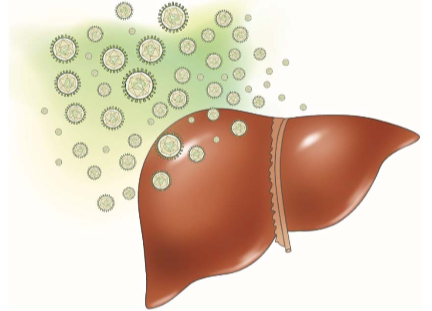Hepatitis C- Symptoms, Complications, Risk Factors, Transmission and Treatment
Hepatitis C is a viral and transmissible disease caused by the Hepatitis C Virus (HCV). Chronic hepatitis refers to the advanced stages of the ailment if it is left untreated for extended periods.
Symptoms of Chronic Hepatitis C:
Although Hepatitis C shows little to no indications in the initial stages, a few symptoms appear as the disease progresses. Some of them include:
- Continual bleeding
- Yellow discoloration of the eyes and skin
- Red or purple spots on the skin
- Itchy skin and red palms
- Fatigue, nausea, and dizziness
- Loss of appetite
- Dark color of urine
- Light-colored stool
- Fever and weakness
- Easy bruising
- Jaundice
- Abdominal swelling and pain
- Abrupt weight loss
- Confusion, incoherent speech, and headache
Complications due to Chronic Hepatitis C
Untreated Hepatitis C can lead to a barrage of complications that may even turn lethal for the affected individual. They include:
- High pressure in the blood veins of the liver (portal hypertension)
- Spleen enlargement (splenomegaly)
- Fluid collection in the stomach (ascites)
- Multi-organ failure
- Liver cancer or failure
- Internal bleeding
- Anemia
- Cirrhosis
- Loss of bone strength and weight
- Type 2 diabetes
- Blood discharge from mouth or rectum
- Disproportionate swelling of the abdomen and legs
- Toxin buildup in the brain (hepatic encephalopathy)
Risk Factors of Chronic Hepatitis C
It is a fact that Hepatitis C reaches a chronic state if untreated for a long time. Nevertheless, specific factors can make one susceptible to developing the ailment and lead to a worsened condition. A few of them are:
- Excessive intake of alcohol and injection drug use
- An undue and unwarranted buildup of fat in the liver
- Obesity
- Coronary artery diseases
- Liver inflammation
- Steroid treatments
- Excessive buildup of copper and iron in the blood
- Genetic disposition
- Autoimmune disorders
- Continued exposure to radiation
Transmission of Chronic Hepatitis C:
Chronic Hepatitis C can be transmitted from one individual to another through body fluids. Hence, its communication can be through the following methods:
- Blood transfusions
- Organ transplants
- Shared personal items like toothbrush, razer, cutlery, and so on with the affected individual
- Unprotected sexual intercourse
- Passing of body fluid through kissing, used needles, etc.
- Transmission from mother to child through the placenta
Treatment:
Doctors use a combination of 100 mg of Velpatasvir and 400 mg of Sofosbuvir, called Velpatasvir and Sofosbuvir, for the treatment of chronic Hepatitis C. It slows down the process of multiplication of the virus and stops it from spreading to other parts of the body.








1 Comment
Rohit Dutta
Nice educational post. I love it…